Message from the Board of Directors
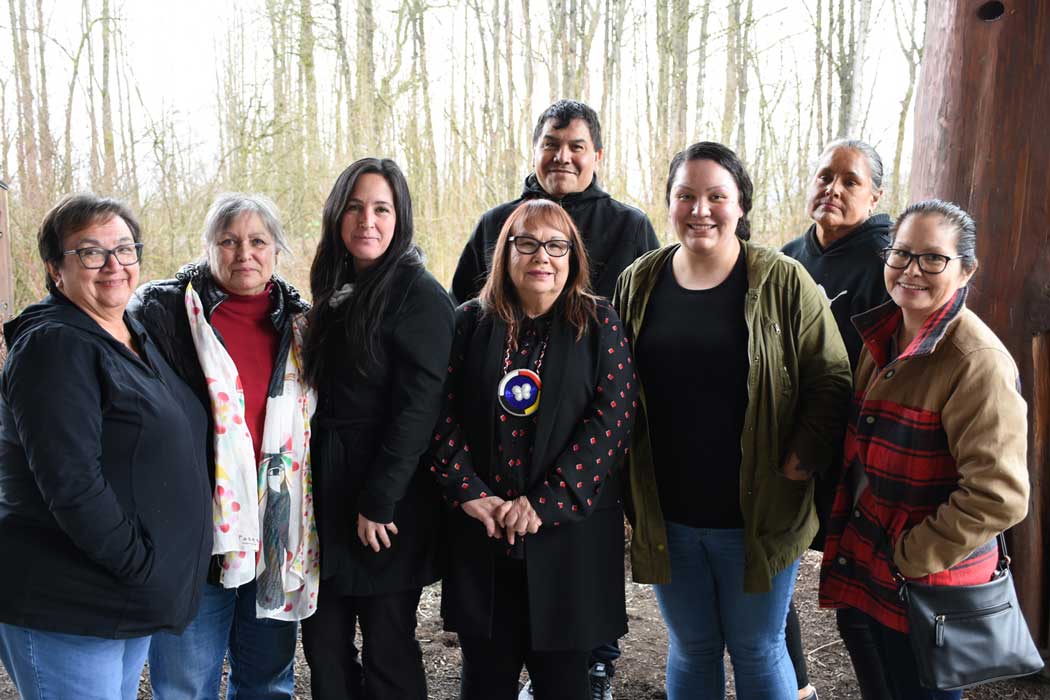
Voices
On behalf of the Xyólheméylh Board of Directors I’d like to welcome all new and existing subscribers to our 2020 Summer “temkw'okw'es” newsletter edition. As First peoples of the land, Summer is such a significant time of the year with the first day of summer coinciding with National Indigenous Peoples Day. The voice of summer speaks to us through the land providing traditional foods and medicines. Through these gifts we can enjoy and share in summer’s abundance and stock up for the seemingly far off winter.
Sharing is a theme in this newsletter. Very recently, our Board of Directors and Elders Advisory Council were asked to vote in a writing contest our agency held inviting all Indigenous children and youth across the province to reflect what being Indigenous meant to them. After reviewing all the entries, I was asked to respond in a quote for the news release to what the children shared. I felt inspired and proud to voice these words:
“Proud…strong…brave…kind is Indigenous. Sharing…caring…traditional…loving is Indigenous. Land…hunting…fishing…resilience is Indigenous. Sun…raven…. language…responsibility is Indigenous. Powerful…proud…family…home is Indigenous. Dancing…drumming…singing…regalia is Indigenous
These are the words our children used to tell us what being Indigenous means to them.
To those who suffered, to those who came home and showed us the way we honour you. Your journey continues to inspire and guide us.”
The world is filled with wonder on so many levels that express the voices of our humanity. The Board would like to convey that we are proud to be here at this time, in this place to oversee the governance of an organization that honors and values inclusion and diversity servicing Indigenous children, youth and families from across the country, living in Stō:ló territory. The Agency’s Mission of honoring and respecting the unique cultures of families and communities as we work together with integrity and dignity, is meaningful and drives how we work for and with others.
As summer brings sunshine, abundance and many opportunities for sharing work and play with family and others, I wish you a happy summer.
In closing, I extend my appreciation to our dedicated staff, caregiver support parents, Elders advisory council, youth advisory, and partners, who have continued to focus on the children, families and communities we serve.
All Voices Matter… Your Voice Matters… Our Voices are strong.
Marion Mussell
Board President
Reflecting back on my last few months with Xyólheméylh gives me a great sense of pride. Reporting to a Board of Directors is new for me and I have a great sense of appreciation for each of them and their focus on governance for our organization and support they provide.
As I met staff, I have seen and felt the passion and the heart they have for their work. Every staff member has a key role that contributes to the overall strategic direction of our organization and their voices matter. Our Executive Leadership team made up of Kyla Darby, Rod Spitzig and I, are so proud of our staff. It was our staff members who came up with ideas of the Social Distancing contest, and the Children in care art contest that went viral across the province! Articles were featured in newspapers and Minister of Children and Family Development, the Honorable Katrine Conroy chose Lucas’s artwork and sent it to every youth in care graduating across the province.
Our Elders Advisory members continue to meet every two weeks remotely with computers, and we are actively working on videos for staff, caregiver support parents, and adding more elders to our roster. Everything we do is vetted through our Elders Advisory committee; our knowledge keepers. We are actively recruiting Elders who live in Stó:lõ territory between Yale and Langley to join our organization.
Our caregiver support parents are key members of our team and we’d like to truly thank them for the amazing role they have in supporting our children and families. We thank you for all you do!
Our Vision and Voices Youth asked for a writing contest that was launched province wide. The theme was What Does Being Indigenous Mean to You? A news release was distributed just prior to National Indigenous Peoples Day that included samples of the submissions in each category, as well as a video featuring a singing and drumming by our staff Justin Williams and listening to the voices of our Elders Violet George and Arlene Heese. The video and submissions are featured in this newsletter.
As National indigenous Peoples Day coincides with the first day of summer, I spent the day reflecting on all I am thankful for as part of the Xyólheméylh work family and the positive momentum we are experiencing. I reflected on the importance of culture embedded into all we do.
I also took the time to reflect on my own life being a birth adoptee, learning later in life that I am an Indigenous Métis Woman, and what that journey means to me. I gave thanks to the love and support of Chiefs and Matriarchs from Stó:lõ and Nlaka’pamux territories who supported my journey three years ago this summer. That was when I visited my family roots in Cumberland House Cree Nation (an island in Northern Saskatchewan) and where I met the Cook family I am part of, and walked the land. It’s a surreal feeling that is hard to put into words. What I do know, is it reinforces my belief that it is every child’s inherent right to know who they are and what they belong to. I also thought of my dad who I had lost 31 years ago as a young teen, all he meant to me, and how losing him and the trauma my family experienced made me want to go into the field of helping others.
When I spent quiet time on National Indigenous Peoples Day, relaxing, getting refocused and recharged in nature I heard the words, “You have a responsibility to become all the Creator intended you to be.” Being by water or in the solitude of nature is when I find myself most creative and most reflective about my life. With summer here, now is the perfect time to sit with the vision of a lake, be still with who we are and reflect on what is yet to come. I see and feel great things ahead … with all of us walking together in partnership to better the lives of the children, youth and families we are blessed to serve.
Létsé mót té sqwálewel - “With a good mind, a good heart, and good feelings”
Practice Update by Kyla Darby
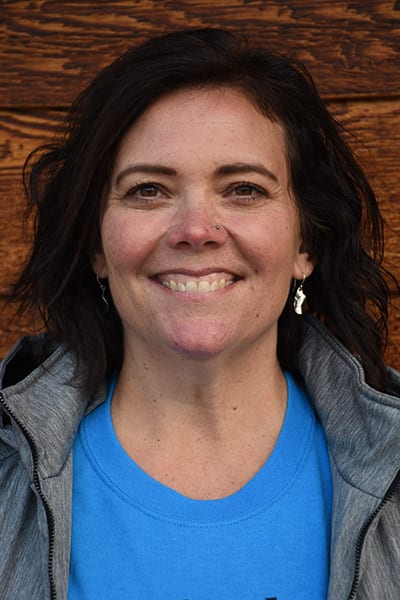
I cannot believe a year has gone by that I’ve been with the agency and I’m so proud of all of our staff and how practice is continuing to move forward. During the Covid-19 crisis practice continued as required as we provide essential services. I have the benefit of being on Provincial Working group committees and was able to help establish interim practice guidelines with the province so our agency had a voice in providing service to children, families and communities. We reduced staff in office to 25-35% and the remaining staff worked remotely from home. The staff continued to support their families from home and through an office rotation into the offices. During the Covid-19 crisis our caregiver support parents went above and beyond in their support and we are so grateful. Support to our families was increased as needed. For my own family during Covid-19 the resiliency of my children is something that has been a highlight for me.
We are currently on a recovery plan for our agency and more meetings and visits are happening in our office locations. Our staff have done an amazing job at keeping our buildings sites safe and have done risk assessments so as an agency we are complying with Work BC and the Provincial Health officer recommendations in the delivery of services. During the Covid-19 crisis we had children return home to their families. I’m proud and excited to see the work continue in a good way. I hope everyone has a fantastic summer.
Meet our resources and family strengthening team
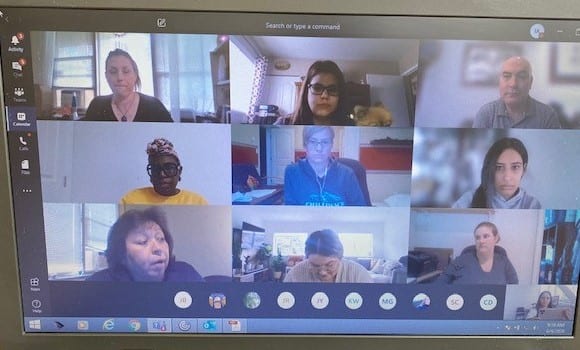
The Resources and Family Strengthening Team at Xyólheméylh is responsible for providing services in a culturally holistic manner with the goal of ensuring the safety and well-being of children. This includes assessing, recruiting, training, supporting, and developing a range of resources to serve children in care.
The team consists of 50 staff who are led by Inderjit Auijla, Director of Operations. They are divided into Resources, the Surrey Family Strengthening Team and the Family Strengthening Youth Basket. Together, they are committed to preserving the cultural identity of Indigenous children and maintaining their ties and attachment to extended family, or Out of Care placement, as it is referred to.
Since the restructuring began last year, prioritizing kin placements to keep children connected to families has been a focus. This means providing more services and support to Out of Care families. Through Family Strengthening programs, they work collaboratively with families and communities to develop strategies in problem solving, life skills, conflict resolution and to develop or enhance parenting skills.
While Out of Care placements are the preferred direction of the Agency, sometimes it is not possible. Our priority is then to connect the child with a loving, caring support parent(s) where the child can be successful and still connected with the culture. Therefore, this team also recruits and trains support parents.
While the child may live with foster parents, the preferred route is that they are still connected to their bio parents and extended family when possible. It is about making the circle bigger. Sometimes, those children are able to return to the custody of the bio parents. As Deb Hill, a caregiver of several Indigenous children said, “I couldn’t do it without the extended family, in a way they have become my extended family.”
To ensure that foster parents and their children in care understand and know Indigenous culture, the agency organizes cultural camps, workshops, ceremonies and access to cultural mentors and Elders. “It’s important for children to know their roots, and heritage and know where they’re from,” says Inderjit.
The team are also focusing on improving training for Caregivers. This has included First Aid Training, Self-Care, and Historical Impacts, Understanding Trauma and Significance of Attachment training. However COVID 19 has caused some challenges and delays, as they explore moving to virtual training.
Another priority is building connections on reserve and working with the Stó:lõ Services team to accomplish this. Children belong to their communities and keeping their cultural and family connections is our utmost priority. We have a Resource Worker specifically assigned to work with on reserve communities for recruitment of family care homes as well building strong connections with the extended families. Since we have created a Stó:lõ Services team, our goal is to work collaboratively to have children stay with their extended families within their communities.
Have you considered becoming a foster caregiver? We are seeking caregivers from all ethnic backgrounds in the Fraser Valley area who are willing to share their homes and provide care for Indigenous children. If you are interested, please contact: [email protected].
Meet: Elly Janik, Resource Team Leader for Chilliwack, Agassiz, Hope
Elly Janik - Sí:lt’alót tel sqwix, has been with Xyólheméylh since the very beginning when it was established in 1992. Elly is from Ch’iyaqtel First Nation, one of the 24 Stó:lõ bands within the Fraser Valley. Elly is the eleventh sibling of thirteen born to Nellie [nee James/Jimmie of Squiala] and Francis Roberts of Ch’iyaqtel. Elly has become a new grandma in the last ten months. “It’s been an interesting experience – you see things in a whole different way,” says Elly. “I love being a grandma.”
Elly and Dan Ludeman were instrumental in setting up the agency. “There were a lot of growing pains over the years,” says Elly. “The vison of Xyólheméylh has always been intended to be in the best interest of our families and children and is always a work in progress”
Elly has held numerous roles with Xyólheméylh, starting out as front-line Resource Worker, Resource Coordinator, Resource Team Leader and Prevention Supervisor and just recently made her way back to Resource Team Leader in 2018. Elly is currently responsible for a team of eight: two OOC Workers, two Resource Workers, one Staffed Residential RW, one On Reserve RW, two Recruitment/Home Study RW all who oversee the foster homes in the region. This includes regular homes, restricted homes (foster care provided by extended family or friends), out of care homes, and staff residential homes.
Elly enjoys supporting the needs of our families and kids in care. “The families we work for are important to us and I want them to feel supported so they can move beyond any struggles in their healing journey,” says Elly.
national indigenous peoples day: June 21, 2020
In honour of National Indigenous Peoples Day, Sunday June 21, 2020, Xyólheméylh asked all British Columbia Indigenous children and youth what being Indigenous means to them. They were asked to express their thoughts in writing in four categories – ages 3 to 6; ages 7 to 10; ages 11 to 14 and ages 15 to 24. The winning entries were chosen by a panel consisting of Xyólheméylh’s Board of Directors and Elders Advisory Committee.
Children and youth expressed their hopes and dreams, their pride in being Indigenous and the importance of culture and community. They also addressed the history of colonization and the intergenerational pain caused by residential schools. Here are a few samples of the winning entries:
“Being Indigenous means love to me.”
- Chloe, 5
“Being Indigenous means I am never alone, my ancestors are always watching over me. I need to honour my ancestors and my community by living healthy and learning the language and teachings.”
- Cameron, 8
“Being Indigenous
Means taking a stand
Being part of a community
Stronger united
But strongest when hand in hand”
- Bella, 13
“Being Indigenous means being thankful for life and what we have. Our drums, our spirit, and our voice! It’s about remembering who we are and letting that shine through wherever we go. It’s also about remembering our history and looking back at how far we have come, to who we are as people today.”
- Alyssa, 16
Thanks to all the children and youth who participated in the contest!
We also made a video featuring drumming and singing by staff member Justin Williams and listening to the voices of two our elders’ advisory members Violet George and Arlene Heese.
Meet an Elder: Violet George
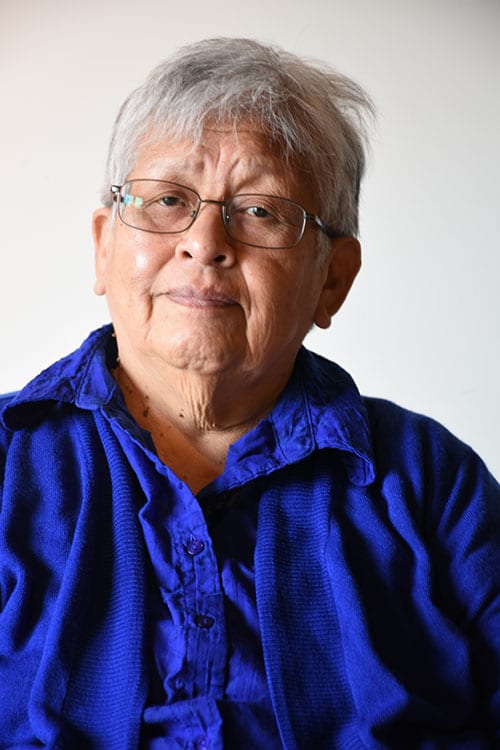
Xyólheméylh has an Elders Advisory Committee comprised of nine elders who ensure we are delivering services in a culturally appropriate and sensitive way. They meet with social workers, caregivers, families and children and provide invaluable advice on conflict resolution, parenting skills, problem-solving and traditional Indigenous culture.
Violet George belongs to the Tzeachten First Nation but lives on the Skwah First Nation with her husband Gerald. She and Gerald have two daughters, one granddaughter and numerous nieces and nephews. They will be celebrating 51 years of marriage this July. She has been with the Agency since the beginning, first as a board member and now as an Elder for the last 14 years. “I was very honoured to become an Elder with Xyólheméylh,” says Violet.
Violet enjoys the company of the other Elders on the Advisory Group and looks forward to hearing their stories. She also enjoys being able to provide direction to the social workers. “The families are still struggling,” says Violet. “We’re there to support them. The Agency’s work is really positive.”
Violet was the fifth of 13 children. She had a special connection to her mother who passed away in 1994. That's how she learned many of the old teachings. She grew up with her grandmother who spoke to her in Halq’emeylem, then her aunt after her grandmother passed. That was how she learned how to cook, which she still enjoys, especially canning and making jams. She also enjoys putting puzzles together in her spare time.
Thank you Violet for all you do for the Agency!
Our Youth Advisory Committee is called Visions & Voices and consists of 19 youth in care or previously in care who are 14 years of age and older. The group ensures that youth have a voice within the Agency on policy and practice and within the larger system of care. The committee also organizes events for children and youth in care, and act as mentors to other Indigenous youth.
Every fall the youth organize the Visions and Voices Forum where they invite Indigenous youth from across the Fraser Valley to listen to speakers, share their experiences of being in care and take part in cultural activities and learnings.
The committee gets together at least once a month to share a meal, participate in workshops, and to organize events for other children and youth in care. Through their engagement in the committee, the youth learn leadership skills, build relationships and gain a sense of pride in their culture.
If you are a youth in care or previously in care, and have a suggestion, a question, or would like to be involved in the committee please contact: [email protected]. We provide dinner, transportation and a small honoraria.
Marina is from Chilliwack. Her late grandmother was from the Soowhalie First Nation.
She joined Visions and Voices because she wanted to educate herself about youth rights and programs that are available to youth in care. She also wanted to connect with other youth in care that share a similar situation.
“The group is important to me because it makes me feel 100 per cent included and heard! It’s also important because no one really talks about being in care so having a safe environment to do so is important,” says Marina.
She would like the annual Visions and Voices forum the youth organize to be longer. “I don’t feel like two days is enough for teachings, conversation and connection. I would love for us to be meeting all year for outings such as movies & bowling,” says Marina.
Meet Support Parents Cheryl and Allan Ward
Cheryl and Allan didn’t intend to have 18 children, but that’s what has happened over the course of 30 years as bio parents and as caregivers. They had five of their own kids and have fostered and adopted the other 13 children over the years. Today in the Ward family household, there are currently nine children, ages two to 19. One of the children adopted Cheryl and Allan in a cultural ceremony.
“When I was young I would visit my older brother who had fostered children and I thought it was the coolest thing ever. Then I married my husband Allan who also loves children,” says Cheryl. “We were blessed that all of our older kids were very good at understanding, accepting and being inclusive.
Cheryl and Allan now have a huge extended family of bio parents, grandparents aunties and uncles who have become part of the extended family, which she loves. “Just because you are not raising the kids yourself, doesn’t mean you are not the parent,” says Cheryl of the bio parents.
She believes strongly that the parents should be in the child’s life if possible. “It’s all about what is best for the children and knowing their families is important. The connection with the bio families happens very organically,” she says.
Cheryl also believes strongly in connecting the children with their culture and regularly attends cultural camps, pow wows and other cultural events to expose the entire family to Indigenous culture. “It’s the best and most rewarding thing we ever did,” says Cheryl about fostering and adopting children.
Thank you to Cheryl and Allan for providing a loving home to so many children over the years. We couldn’t do it without you!
community profile: Chawathil
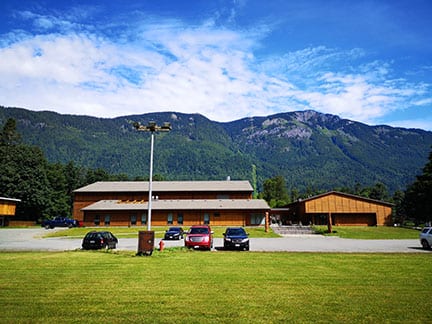
The Chawathil First Nation is one of the 18 member bands that Xyólheméylh serves in Stó:lō% territory. Their traditional territory once occupied much of what is now Hope and surrounding areas. Now their reserve, created in 1858, is located by Katz and occupies 1600 acres. They count 637 people on their band registry, with about half on reserve, and half off reserve.
Neighbouring communities include: Skw’atets (Peters), Sq’ewqel (Seabird Island), Shxw’owhamel, Sq’ewq:lxw, Iwowes (Union Bar), Popkw’em (Popkum) and Xwoxwelá:lhp (Yale). There are many family ties between the communities, collaboration on governance, social development, health and recreation, as well as shared seasonal ceremonies and spirituality that is the result of centuries of common history and ancestors. The seven first nations share TaTeLalemtset, a community gathering place with a full-size gym.
Since time immemorial, the First Nations along the Stó:lō River (now known as the Fraser River after Simon Fraser named it after himself) used the river as a freeway, and the mode of transportation was the canoe. Communities were identified and named because of their unique geographic markings. Chawathil means “where the land meets the water.”
Natural resources in the territory have sustained the people and way of life for centuries. The people moved throughout the territory using the resources and land which provided for fishing, hunting and gathering, to maintain their livelihood. In the mid 1800s, Chawathil’s ancestors transitioned from a seasonal lifestyle to a more agarian lifestyle. This coincided with the Reserve system, followed by the second smallpox epidemic which claimed an estimated 50 per cent of the population. That was followed several decades later with the introduction of residential schools.
Today, the Chawathil people own and operate the Telte-yet Campground which is on the banks of the Fraser in downtown Hope, as well as own a forestry company. “Self-sufficiency remains our number one goal,” says Patricia John, band historian.
Led by Ronald G. John or his traditional name, Oyeysek, Grand Chief, and Chief Rhoda Peters, as well as six councillors, Chawathil First Nation ‘s Working as One plan (Lexw Siyo:es) is their road map to making their collective vision for future development and prosperity a reality. It was developed through broad community participation and input based on clearly articulated visions by the Nation members that embrace Chawathil culture and tradition. Their priorities are self-sufficiency as mentioned above and protecting culture, spiritual heritage and traditional sites of significance.
For centuries Stó:lō cultural knowledge had been passed down from elders to the future generations, but colonialism had interrupted that ancient chain of succession. Our Sto:lo communities have gained prestige along with indigenous peoples across Canada with the current recognition of Free and Prior Informed Consent, the Truth & Recognition Commission, Murdered and Missing Indigenous Women, the United Nations Declaration on the Rights of Indigenous Peoples. This includes knowing the traditional place names and sacred sites that were un-recorded, the oral history and re- learning our language Halq'meylem. A much validated strength begins in knowing who you are and where you're from. This history has made will make our young leaders stronger. In closing, Chawathil stands united for Sto:lo traditional unity.
S'olh temexw te ikw'elo. Xolhmet te mekw' stam it kwelat:
This is our land. We have to take care of everything that belongs to us
Sto:lo Declaration
Translated and written by late Matilda Gutierrez
Paula Omstead, FVACFSS Board Member
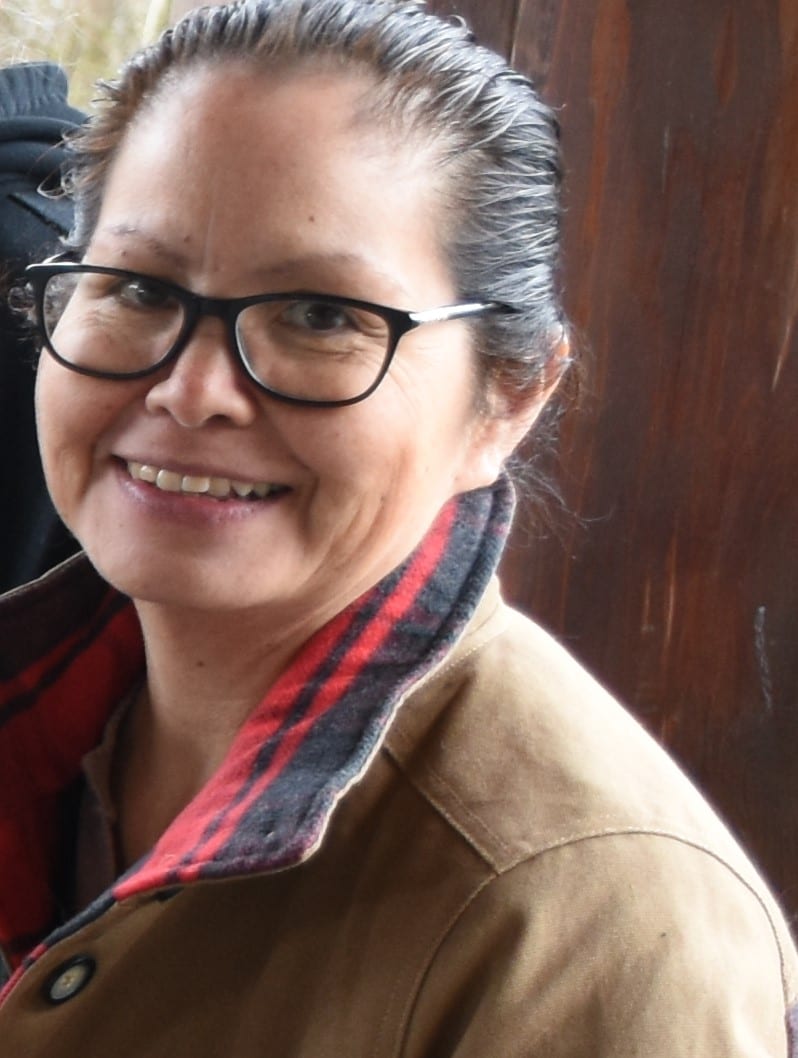
Paula Olmstead is a member of the Sumas First Nation. She joined the Fraser Valley Aboriginal Children and Family Services Society (FVACFSS) Board in November 2017. Paula was raised with strong cultural teachings and has worked closely with the Elders of Sumas First Nation as well as various other Elders within the Fraser Valley.
Paula works closely with staff in supporting and connecting with the communities, families, youth and enjoys teaching Indigenous culture. “I love sitting with all the fabulous board of directors past and present and look forward our meetings and cultural events. I love to meet the youth, elders, staff and caregivers for our Delegated Agency and hear the success stories. I love to listen to the wisdom and knowledge of our Elders. It is so important that our families and children know where they belong. I look forward to this next year on the Xyólheméylh Board and all it has to bring,” says Paula.
Paula is an avid traveller of the world and visited Africa last year as well as the Yukon this past January to snowshoe and dog sled. “Next year some friends , myself and my husband are planning a canoe trip up in the Yukon for summer solstice. I was supposed to be travelling to Haida Gwaii this June but had to cancel to another time due to Covid – 19,” says Paula.
Since 2012 she has taken youth from Sumas First Nation and Abbotsford Area on the Pulling Together Canoe Journey. “Growing up in fear of the police I felt it important to try and help break the cycle and introduce youth and adults to this powerful healing journey where our ancestors had once travelled and educate them on the importance of connecting with Mother Earth. My late father, Dr. Ray Silver, always told me the rivers and streams are the blood vessels of Mother Earth. We must never ever dirty that water because we drink from it and eat our fish from those water ways and if we don’t take care of Mother Earth we will die from starvation. Cultural Protocol is very important on this journey, I now call it a big family reunion because hundreds of people show up every year and we make a connection with each individual. The RCMP, Vancouver Police, West Vancouver Police, Abbotsford Police, The Navy, Department of Fisheries are all part of this annual gathering. I love being with youth and teaching, guiding and connecting with them and this is a huge part of my life,” says Paula.
Paula is in the catering business and has catered huge events for Elder’s gatherings, First Nations events as well as BC Tourism. “I love to care for people and this is one of the ways I can do it. I put my heart into my food and love doing this,” says Paula.
We are looking for Elders to join our team!
BC Child & Youth in Care Week News
June 1 to 7 was BC Child and Youth in Care Week, organized by our friends at Federation of BC Youth in Care Networks. Young people in care advocated for this special week so their brothers and sisters can grow up feeling celebrated for their diverse talents and accomplishments, surrounded by a supportive community who stands with them. They also wanted to raise awareness about the barriers they face and fight the stigma that comes with being a “foster kid.” The goal of the week is to raise social awareness and shift negative perceptions; to recognize children and youth in care, like all young people, as individuals with talents, contributions, and dreams.
We were thrilled that one of our youth in care received a BCCYIC Week award from Katrine Conroy; Minister of Children and Family Development! Ceda, age 16, was nominated by her social worker Angelle Colli, who describes Ceda as “an amazing young lady with lots of hopes and dreams she is working towards.” One of Ceda’s goals is to join the military and she has been working extremely hard academically and personally to make that dream come true. Angelle describes Ceda has a very caring person. “Ceda will encourage other youth and reach out to them if they are struggling and offer support.” Congratulations to Ceda and Angelle!
We had a contest asking kids to draw or paint their feelings of being a child in care. We received many excellent entries, and the winners were chosen by a panel of Xyólheméylh Board members and our Elders Advisory Council. The first prize submission was turned into a greeting card for the Agency which was sent along with team messages and a subway giftcard to all our children and youth in our care. Congratulations to Dustin for his amazing artwork and message.
In other BCCYIC Week news, we also shared submissions from the art contest we organized with children and youth in care last month with our colleagues at the Provincial Office at the BC Ministry for Children and Family Development. They loved them so much that Minister Katrine Conroy chose one submission to be featured on a graduation card that she will be sending to all Children in Care in the province. Congratulations to Lucas J. who titled his artwork “Opportunity to Fly.” According to his social worker, Reiza Melsom, Lucas was very excited to have his artwork chosen by the Minister.
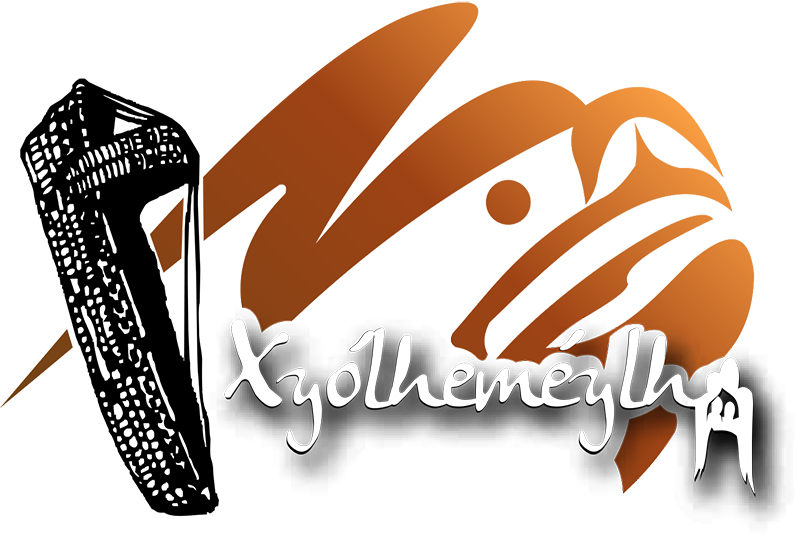

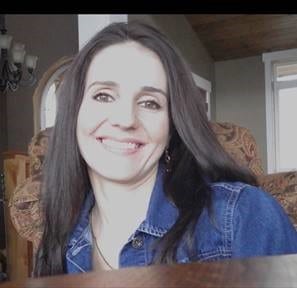
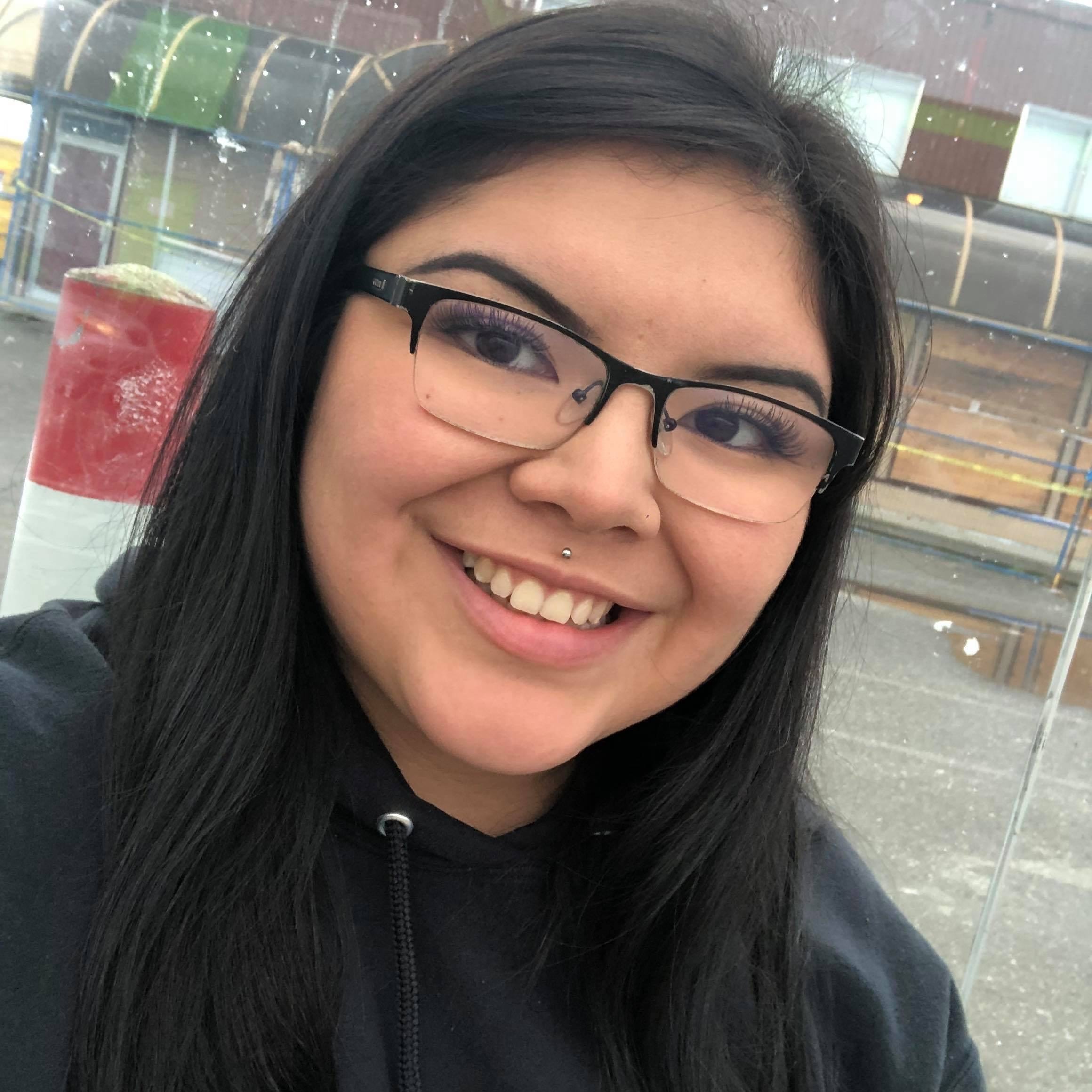
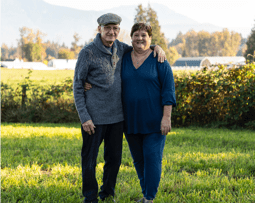
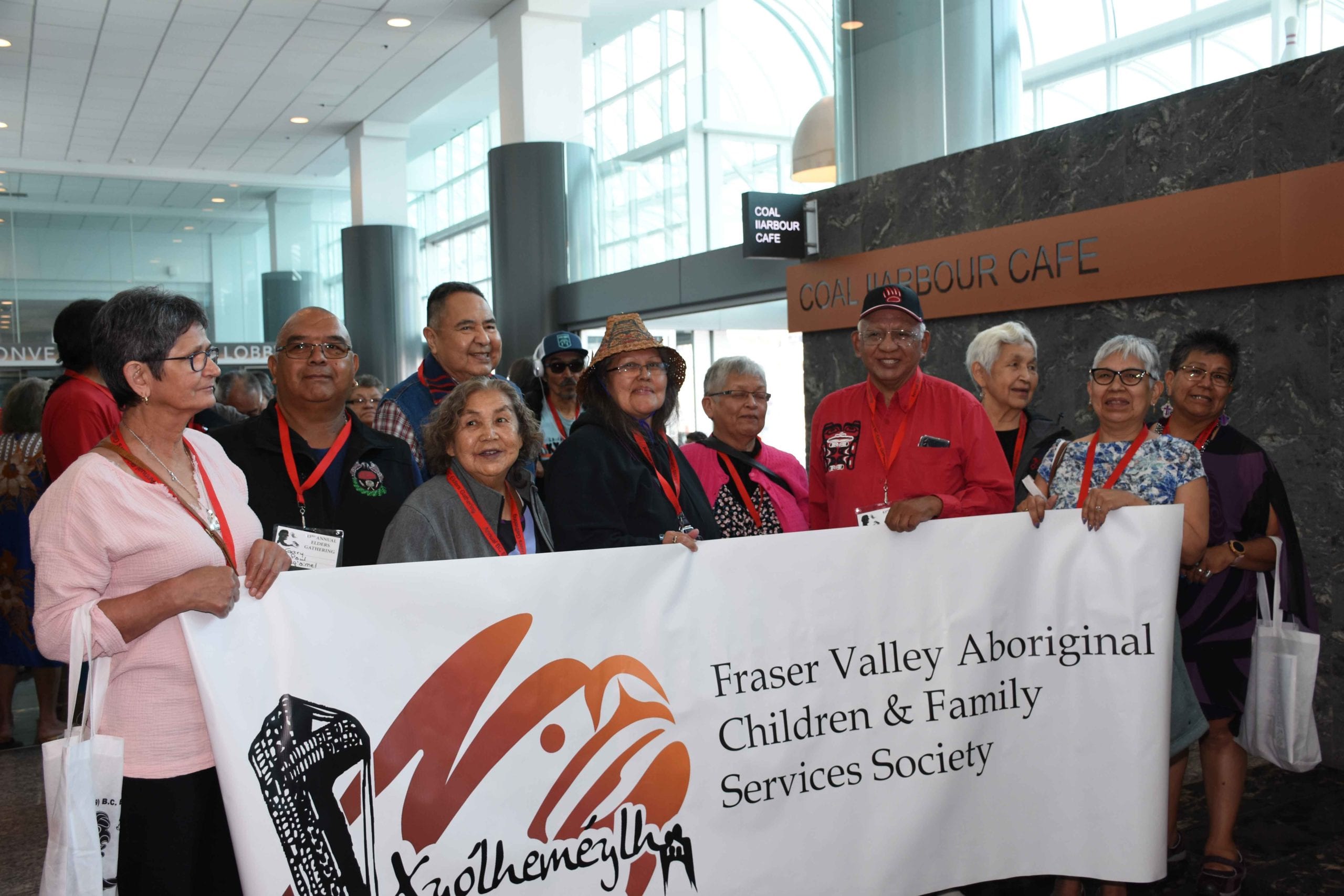
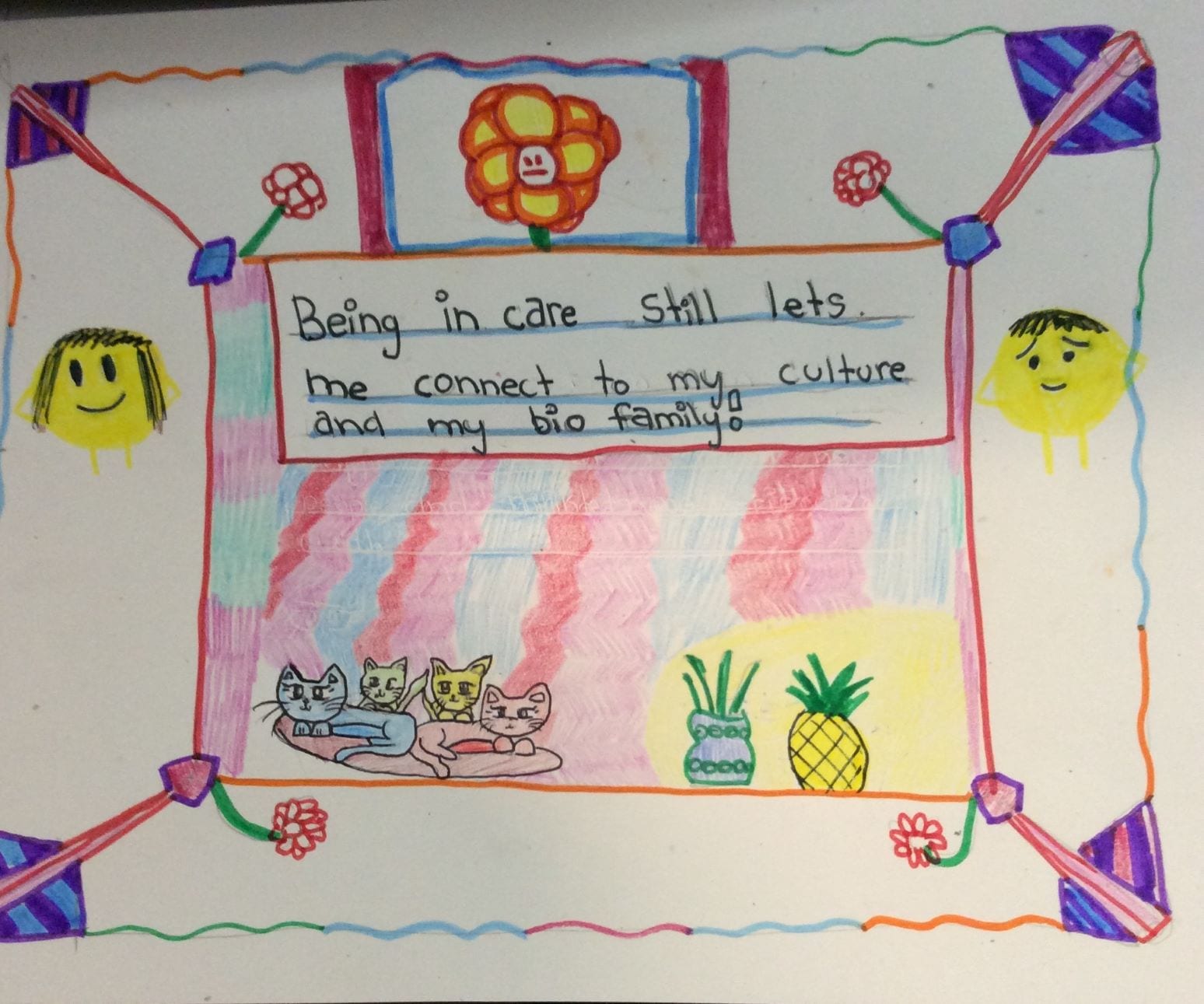
Our Social Distancing Poster & Video Contest Results
In April we asked all Indigenous children and youth in British Columbia to create posters and videos to describe their feelings about social distancing and COVID-19.
“We organized the contest to connect with children and youth who may be feeling a myriad of emotions during this strange time and to provide them with an outlet to express their feelings,” said Kyla Darby, Executive Director of Programs. “The entries showed a lot of creativity, heart and talent.”
Many of the entries expressed unique concerns about the arrival of the COVID-19 pandemic. In particular, concerns about the safety of Elders who carry our history and teachings was a common theme.
The winners were chosen by a panel consisting of the members of the FVACFSS Board of Directors and Elders Advisory Committee. “We received many artistic, creative and thoughtful entries and it was a real challenge to pick a top three. To our young artists thank you for sharing your work and please keep sharing your excellent artistry. The Board is honoured to have been part of this and we extend our heartfelt appreciation to all who participated and our congratulations to the prize winners,” said Marion Mussell, Board of Directors President.
Congratulations to the winners:
Poster Category: Myka Friesen, Jada Michel and Cora McIntyre.
Video Category: Emma Lee Kelly, Bella Fitzgerald, and Nikita Hance